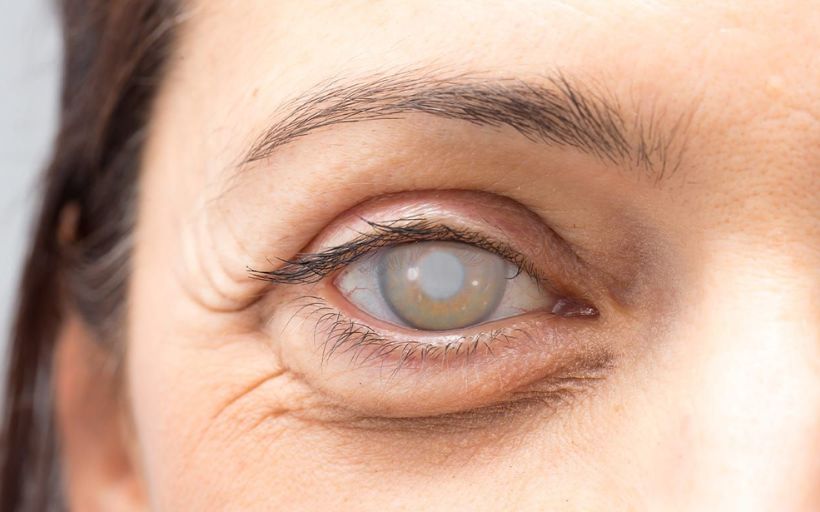Cataracts are a common eye condition where cloudy areas develop on the lens of the eye, causing vision problems. Understanding the symptoms and causes of cataracts can help in early detection and effective management.
In this blog, we’ll explore the types of cataracts, their symptoms, and what you can do about them, including the benefits of taking cataract surgery treatment.
What Are Cataracts?
Cataracts happen when the eye's normally clear lens becomes cloudy. This cloudiness results from the breakdown of proteins in the lens, which happens naturally with age. As the proteins clump together, they form opaque patches that block and scatter light, leading to blurred vision.
Types of Cataracts
Age-Related Cataracts: The most common type, age-related cataracts, develops as a natural part of aging. This type typically starts to affect people in their 60s or 70s, although it can occur earlier. It progresses slowly, and many people notice it as a gradual decline in vision.
Pediatric Cataracts: These cataracts occur in infants and young children and can be present at birth or develop later. They may be caused by genetic factors or other conditions that affect the eye's development. Early detection and treatment are crucial to avoid long-term vision problems.
Symptoms of Cataracts
Cataracts develop gradually, and their symptoms can vary from person to person. Following are the common signs to watch for:
Blurred or Hazy Vision: One of the first signs of cataracts is a noticeable blur or haze in your vision. This can make everyday tasks like reading, watching TV, or driving, particularly at night, more challenging.
Difficulty Seeing in Bright Light: Cataracts can increase sensitivity to bright or direct sunlight, making it uncomfortable to see. You might also notice halos around lights or glare that weren’t an issue before.
Changes in Color Vision: With cataracts, colors may appear less vibrant or faded. This change occurs because the cloudiness of the lens affects the way light is perceived and filtered.
Difficulty Seeing at Night: Low-light conditions, such as nighttime driving, can become more problematic due to the glare and reduced contrast.
Frequent Changes in Eyeglass Prescription: As cataracts progress, they can significantly alter your vision, requiring frequent adjustments to your eyeglass prescription to maintain clear sight.
Challenges with Daily Activities: Cataracts can make routine activities, such as reading, cooking, or grooming, more difficult. The visual impairment caused by cataracts can interfere with your ability to perform these tasks comfortably.
Causes of Cataracts
While aging is the most common cause of cataracts, several factors can contribute to their development:
Age: The risk of developing cataracts increases as you get older. Most people will experience some degree of cataract formation as they age.
Genetics: A family history of cataracts can make you more susceptible to developing them.
Medical Conditions: Certain health conditions, such as diabetes, can increase the risk of cataracts.
Eye Injuries: Trauma to the eye can lead to the development of cataracts, either immediately after the injury or years later.
Exposure to Ultraviolet (UV) Light: Prolonged exposure to UV light from the sun can contribute to cataract formation.
Smoking and Alcohol: Lifestyle factors such as smoking and excessive alcohol consumption can increase the risk of developing cataracts.
Treatment for Cataracts
If you notice symptoms of cataracts, it’s important to consult with an eye care professional. Early diagnosis can help manage the condition effectively. The primary treatment for cataracts is surgery, which involves removing the cloudy lens and replacing it with a clear artificial lens. Cataract surgery is a common and generally safe procedure with a high success rate.
Benefits of Cataract Surgery
Improved Vision: Most people experience significant improvement in their vision following cataract surgery.
Enhanced Quality of Life: With clearer vision, daily activities become easier and more enjoyable.
Quick Recovery: The recovery period is typically short, with many patients noticing improved vision within a few days.
In summary, cataracts are a common eye condition that can gradually affect vision over time. Understanding the symptoms and receiving timely treatment can help manage the condition effectively and improve overall vision health.
If you or your loved one is suffering from blurry vision, it is better to address this issue earlier, or else it will affect your eyesight in the future. Schedule a consultation with our expert at Omkar Eye Hospital for more information about cataract surgery treatment in Chinchwad.


